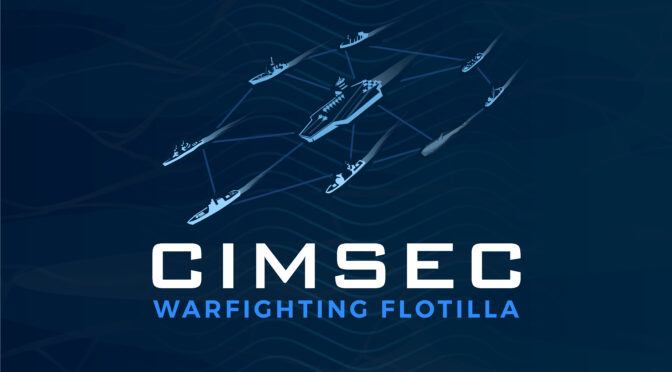By Dmitry Filipoff
This month the CIMSEC Warfighting Flotilla will discuss SWO warfighting culture, cross-community integration with the submarine force, and the state of mission command. If you haven’t already, sign up through the form below to become a Flotilla member and receive the invites to our upcoming off-the-record September discussions. The listings for these upcoming discussions are featured down below.
Prior to taking a break in August, in July the Flotilla held discussions on the warfighting skillsets of the naval strike fighter community and the lessons from the 2017 collisions that roiled the surface warfare community. These discussions produced candid exchanges and further insight into force development improvements, while growing networks between the participating navalists and warfighters.
Feel free to visit the Flotilla homepage to learn more about this community, its activities, and what drives it.
Upcoming September Sessions
____________________________________________
SWO Warfighter Mentality
The Surface Warfare community is challenged by many factors, including high operational demand, onerous administrative requirements, extensive maintenance obligations, and other issues. Amidst these challenges, the warfighting culture of the Surface Navy has come under greater scrutiny, including from Congress. What is the state of the warfighting culture of the Surface Navy and how is it trending? What habits and mentalities need to be learned and unlearned? How must culture evolve to meet threats posed by great powers? Join us to discuss these questions and more as we consider the warfighting culture of the Surface Navy.
Read Ahead: “The State of the Warfighter Mentality in the SWO Community,” by Lt. Judith Rooney
____________________________________________
Submarine Integration
The submarine force has had its heavily focus affected by the War on Terror like other Navy communities, and with a greater emphasis on independent action. As great power threats grow, the Navy must consider how to more closely integrate the submarine force with other elements of naval power for both peacetime and wartime operations. How can the submarine force better integrate with other navy communities to enhance combined effectiveness? What sorts of measures and efforts can enhance cross-community understanding and force development? Join us for our discussion on how the submarine force can be more closely integrated with other elements of naval power.
Read Ahead: “Independent but Integrated,” by Capt. Dick Corpus (ret.) and Capt. Kevin Eyer (ret.)
____________________________________________
Evolving Mission Command
Mission command is an important principle for launching effective operations and creating flexible command relationships. But while mission command is often touted in doctrinal publications, it may not be well-practiced in reality, with more micromanagerial command relationships often spreading in the information age. What is the state of mission command and the degrees of trust between higher and lower echelons across chains of command? What various states of mission command are better suited to peacetime and wartime operations? Join us to discuss mission command and themes of command relationships in this upcoming discussion.
Read Ahead: “The Atrophy of Mission Command,” by Capt. Rob Peters and Capt. Benjamin Miller, U.S. Navy, and LtCol. Brian Hanrahan, U.S. Army
____________________________________________
Completed July Sessions
____________________________________________
Learning from Fitz and McCain 5 Years Later
Five years after the fatal collisions involving USS John S. McCain and USS Fitzgerald, what has the Navy learned? Numerous recommendations were put forth by the investigations and reviews. How well have changes been realized? Do deckplate Sailors see a difference, and are operational demands being more carefully managed? Join us to discuss these questions and more as we consider what was learned from these events.
Read Aheads: “Five years later: Inside the Navy’s data-driven quest to avert a future Fitzgerald or McCain collision,” by Megan Eckstein
“Surface warfare officers cautiously optimistic about changes since Fitz and McCain disasters,” by Geoff Ziezulewicz and Diana Stancy Correll
____________________________________________
Naval Strike Fighter Skillsets
The strike fighter community is spread thin across many skillsets and the global war on terror has heavily shaped the operational experience of naval aviators. As the Navy focuses on great power competition, should the strike fighter community reconfigure its focus? Should strike fighters specialize in certain areas or is a more generalist approach required? Join us to discuss these questions as we examine how the strike fighter community could evolve.
Read Ahead: “The Strike Fighter Time Management Problem,” by Stephen Walsh
____________________________________________
Dmitry Filipoff is CIMSEC’s Director of Online Content and Community Manager of the Warfighting Flotilla. Contact him at [email protected].


The submarine force can be more closely integrated with other elements of naval power. Thanks very nice article keep sharing.